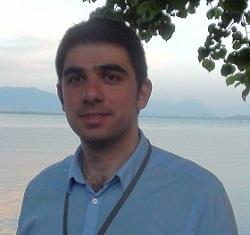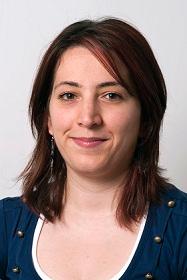Using AI to control energy for indoor agriculture
30 September 2024
Published online 18 July 2011
A group of young Arab researchers gathered last month on the small German island of Lindau along with hundreds of their peers from across the globe to meet, talk and listen to over two dozen Nobel laureates.
Most of the 12 young Arab researchers who gathered for the 61st Lindau Nobel Laureate Meeting, held from 26 June to 1 July, live and work outside the Arab world.

Antoun Aboukhalil is a Jordanian-born electrical engineer who emigrated with his family to Canada while still a child. He is currently studying for a PhD on bio-computational modelling at the Massachusetts Institute of Technology (MIT) in the United States.
For Aboukhalil, the Lindau meeting is a unique opportunity to experience the human side of the laureates and learn from their mistakes and failures. "You don't find these details in the [research] papers. These vivid stories they share are a boost to us young researchers," says Aboukhalil. "They also give us tips and advice on the paths we should or shouldn't take in our research work."
Aboukhalil contends that Arab researchers can learn much on how the West conducts research from attending this type of meeting and by developing interdisciplinary research — such as mathematicians working with biologists.
"We need to push universities in the Arab world to start investing in bio-computational modelling," says Aboukhalil. "What we do doesn't require too much money — just computers and smart people with a good background on computer programming and some biology."
Abdul Kader Azzouz, a Syrian geneticist studying for a PhD at Swansea University in the United Kingdom, enjoyed the direct interaction with the laureates. "I had the chance to speak several times to medicine Nobel laureate Peter Agre. I told him how the economic blockade against Syria is harming my country in terms of education and scientific research."

Nadia Haj Yasein, who is pursuing a doctorate in neuroscience at University of Oslo, Norway, was born in East Jerusalem and was proud to represent the Palestinian Occupied Territories and Arab women at the Lindau meeting.
"I am quite lucky to be here," says Haj Yasein. "It is a good opportunity to exchange ideas and build connections with researchers from around the world which might lead to future collaboration." She found the focus of this year's meeting on health and medicine especially relevant to her as it is her dream to rebuild her homeland one day.
For Eiman Aleem, a biochemist at Alexandria University, Egypt, and a researcher at the Cancer Center Karolinska Institute in Stockholm, networking with other young researchers from around the world was also the most important part of the meeting. "It is very useful to get the chance to exchange contacts and learn from other researchers who are also looking for answers through their research."
But Azzouz regretted the small turnout of Arab researchers at Lindau and blamed a lack of interest from Arab institutes.
"There are many clever researchers who can come and represent the Arab nations in this meeting," says Azzouz. "Our governments should support more researchers to come. Our talks here discuss the link between what we as humans have achieved and how we will tackle our future challenges."
doi:10.1038/nmiddleeast.2011.91
Stay connected: